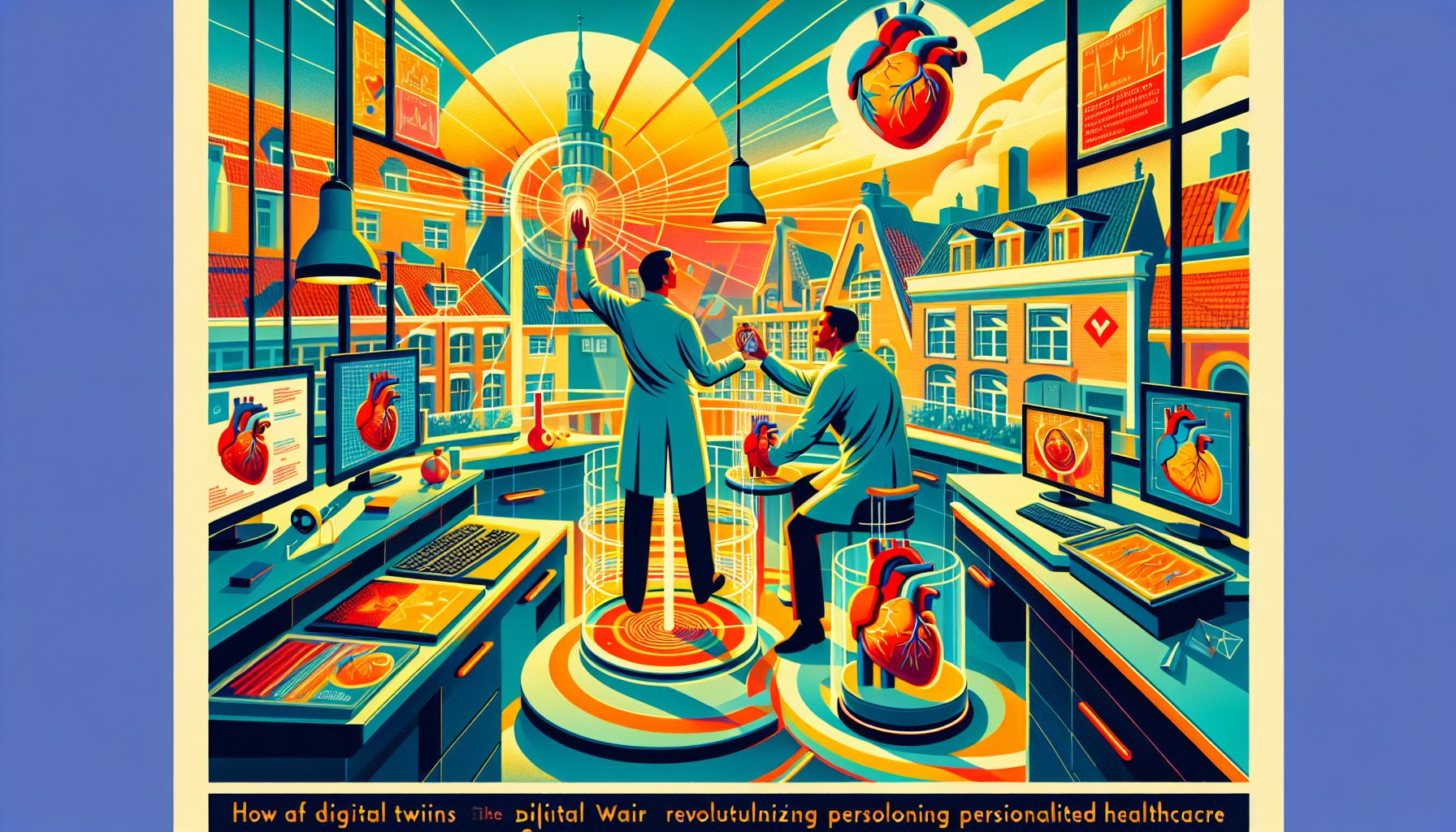Digital Twins: Revolutionizing Personalized Healthcare in the Netherlands

Eindhoven, Friday, 1 November 2024.
Researchers at Eindhoven University of Technology and Catharina Hospital are developing digital twins to provide tailored care for heart patients. This technology aims to predict individual patient needs, improve treatment outcomes, and potentially save lives by anticipating risks such as post-heart attack arrhythmias.
Harnessing Technology for Heart Health
Digital twin technology represents a significant leap forward in personalized healthcare. Developed by Lukas Dekker, a cardiologist-electrophysiologist at Catharina Hospital and professor at Eindhoven University of Technology, alongside Carlijn Buck, a Ph.D. candidate specializing in cardiovascular biomechanics, this innovation is set to transform the way heart conditions are managed in the Netherlands. Digital twins are virtual representations of individual patients, created by integrating comprehensive health data such as medical records and real-time monitoring from wearable devices. The primary aim is to provide precise, tailored treatment plans, moving away from a one-size-fits-all approach to a model that considers the unique physiological attributes of each patient.
The Mechanics of Digital Twins
At the core of this innovation is the ability to simulate the human heart’s behavior under various conditions using real-time data. The digital twin can predict health outcomes, providing insights into potential risks such as cardiac arrhythmias following a heart attack. By utilizing inputs from medical scans and patient responses, the technology enhances the precision of treatment strategies. This method not only improves patient outcomes but also reduces the burden on healthcare systems by accurately estimating the medical care required. The technology is part of the COMBAT-VT project within the Eindhoven MedTech Innovation Center (e/MTIC), which involves collaboration with Philips and multiple hospitals, focusing on advancing cardiac arrhythmia treatments.
Broader Implications and Future Prospects
The integration of digital twins into healthcare systems is not limited to cardiology. This technology has the potential to revolutionize various medical fields by providing preventive care and enhancing decision-making processes. The concept has already been applied in areas such as diabetes management and personalized nutrition, demonstrating substantial improvements in patient outcomes. For instance, in diabetes research, digital twins have been used to predict disease progression and tailor dietary recommendations, achieving significant health improvements. As this technology evolves, the use of wearables like smartwatches to monitor health metrics will become more prevalent, allowing for continuous remote monitoring and timely medical interventions.
Ethical Considerations and Challenges
Despite the promise of digital twins, ethical considerations and technical challenges remain. The collection and use of personal health data necessitate stringent privacy protections and ethical guidelines to prevent misuse and discrimination. Furthermore, the development of digital twins requires robust data sets and computational power, posing challenges in terms of scalability and accessibility. However, initiatives like the European Commission’s EDITH project are working to create frameworks and infrastructures to support the broader adoption of digital twins in healthcare. As the global market for digital twin technology is projected to grow substantially, addressing these challenges will be crucial to realizing its full potential in personalized medicine.

